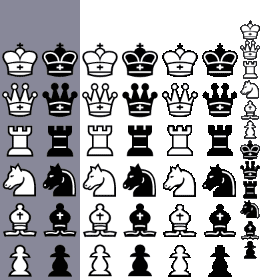I woke up today feeling like I have a cold or bad allergies, so I spent half the day watching the World Blitz Chess Championship on YouTube, which I probably would have watched anyway.
In a stunning turn of events, Magnus Carlsen and Ian Nepomniachtchi agreed to share the title of World Blitz Chess Champion after three draws in a tie-break playoff. However, the rules state that they had to keep playing until someone won. Magnus suggested that they split the title, Nepomniachtchi agreed, and they asked the arbiter if they could do this. After some behind-the-scenes discussion, it was permitted.
I learned today that these two men have been close friends as well as competitors for decades. Both were born in 1990. This is Nepomniachtchi's first World Championship title.
There is a complicated history behind all this. Magnus Carlsen is widely regarded as the best player to have ever lived, but there are a few players who are close to his level. Magnus has won the classical World Chess Championship five times, defeating Nepomniachtchi twice. However, he decided to stop defending his title. Classical games can be very long, lasting up to six hours each, and the World Championship can be a grueling tournament lasting at least a couple of weeks. Magnus stated that the classical World Championship no longer interests him.
After Magnus, the World Championship title was won by Ding Liren of China and then Gukesh Dommaraju of India.
However, Magnus has continued to participate in rapid and blitz championships. Both tournaments just concluded. Magnus withdrew from the Rapid Championship over a dispute with the organizers due to his violation of the dress code by wearing jeans, which made international news. He initially wasn't going to play in the Blitz Championship, but the parties resolved their differences and even relaxed the dress code for the two-day Blitz championship. I saw many players wearing jeans during the Blitz Championship.
--
Best wishes,
John Coffey
http://www.entertainmentjourney.com
In a stunning turn of events, Magnus Carlsen and Ian Nepomniachtchi agreed to share the title of World Blitz Chess Champion after three draws in a tie-break playoff. However, the rules state that they had to keep playing until someone won. Magnus suggested that they split the title, Nepomniachtchi agreed, and they asked the arbiter if they could do this. After some behind-the-scenes discussion, it was permitted.
I learned today that these two men have been close friends as well as competitors for decades. Both were born in 1990. This is Nepomniachtchi's first World Championship title.
There is a complicated history behind all this. Magnus Carlsen is widely regarded as the best player to have ever lived, but there are a few players who are close to his level. Magnus has won the classical World Chess Championship five times, defeating Nepomniachtchi twice. However, he decided to stop defending his title. Classical games can be very long, lasting up to six hours each, and the World Championship can be a grueling tournament lasting at least a couple of weeks. Magnus stated that the classical World Championship no longer interests him.
After Magnus, the World Championship title was won by Ding Liren of China and then Gukesh Dommaraju of India.
However, Magnus has continued to participate in rapid and blitz championships. Both tournaments just concluded. Magnus withdrew from the Rapid Championship over a dispute with the organizers due to his violation of the dress code by wearing jeans, which made international news. He initially wasn't going to play in the Blitz Championship, but the parties resolved their differences and even relaxed the dress code for the two-day Blitz championship. I saw many players wearing jeans during the Blitz Championship.
--
Best wishes,
John Coffey
http://www.entertainmentjourney.com










